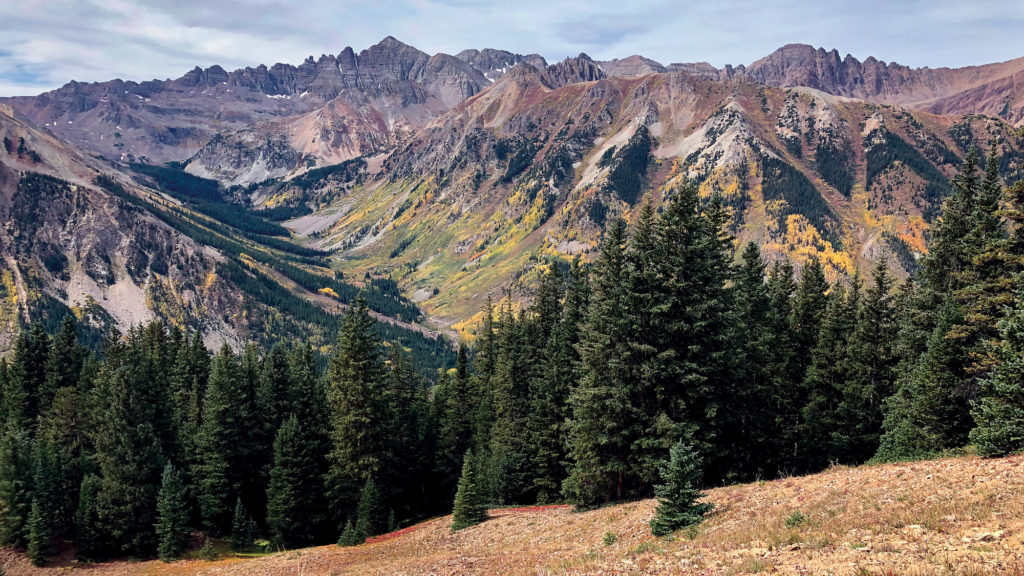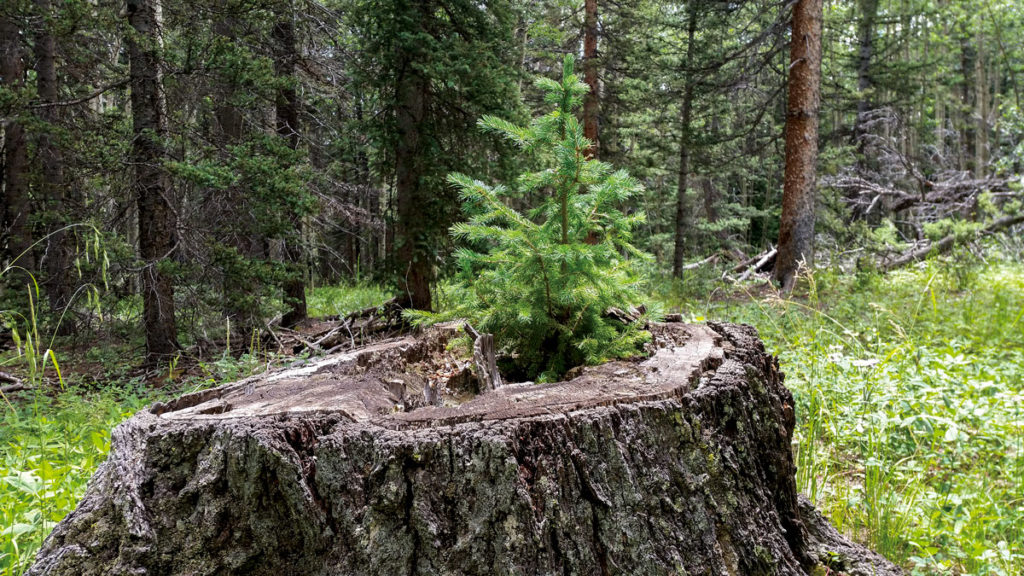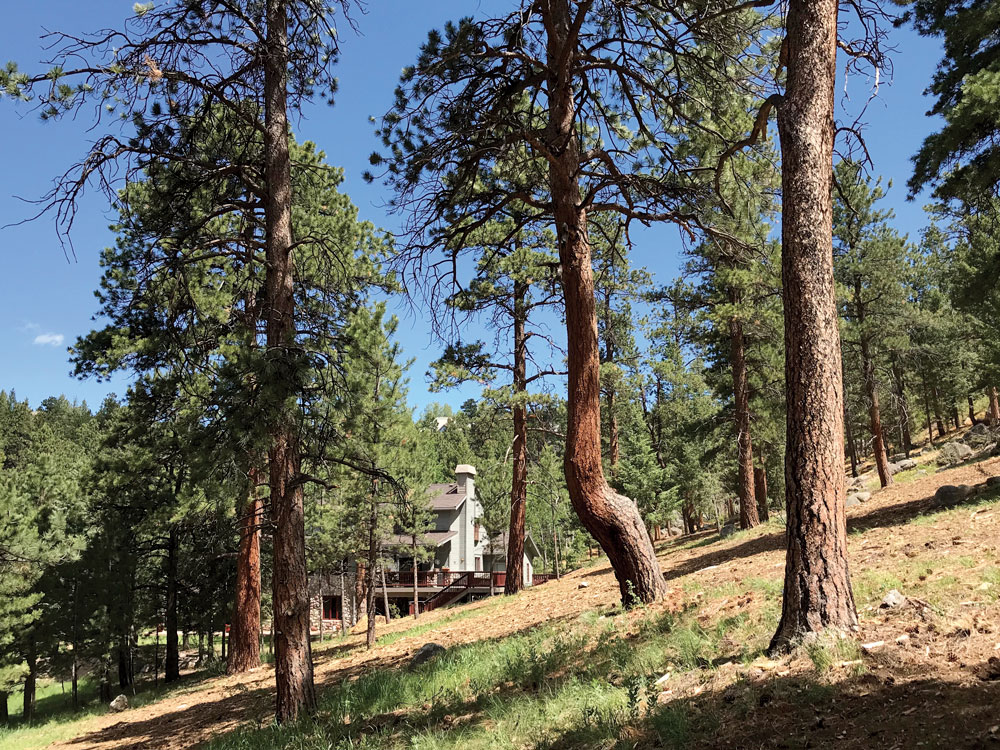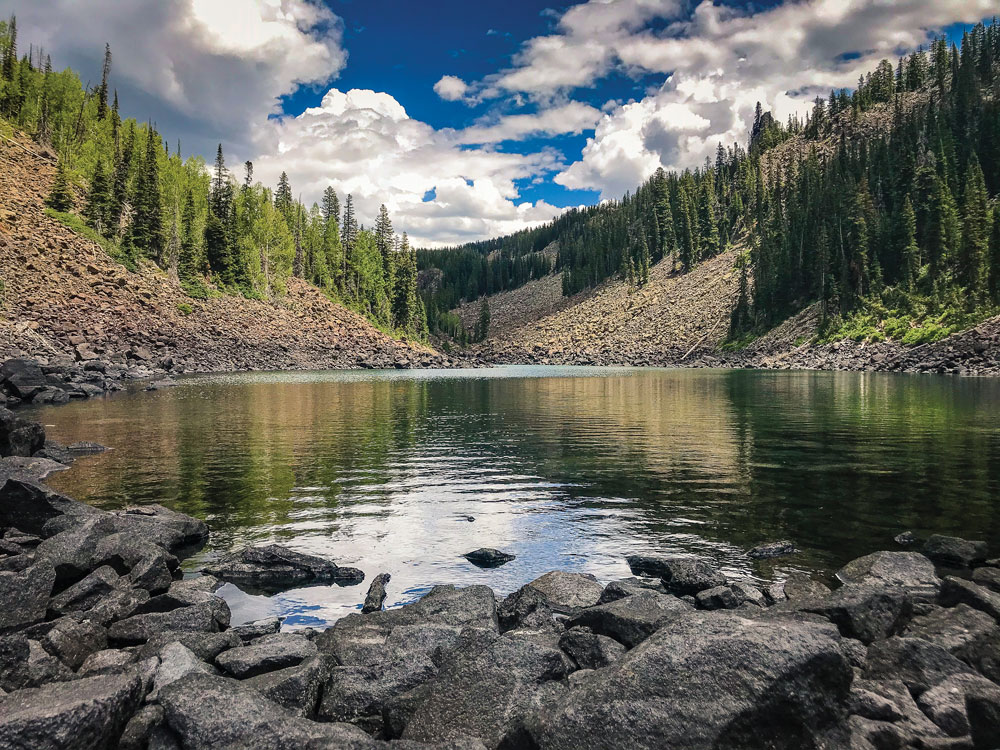
The Colorado State Forest Service (CSFS) didn’t wait long to take action on its newly published Forest Action Plan. The week after the plan was released, the state agency partnered with other Colorado State University units to get a jump start on the next decade of forest management for the Centennial state.
In mid-November, CSFS employees developed a workshop with the Colorado Forest Restoration Institute (CFRI) and researchers in the Forest and Rangeland Stewardship department that provided over 100 CSFS foresters, program managers and specialists with a better understanding of how to use the Forest Action Plan and communicate it to state partners. Amanda West Fordham has served as the interim associate director of the CSFS Science and Data Division for the past year, leading the efforts to finalize the plan and organize the workshop.
“The Forest Action Plan is the result of experts across the state collaborating to identify the most pressing threats to Colorado forests, and this workshop was the first step in planning to address them in upcoming years,” said Fordham, who is also the agency’s manager of science information.
The primary threat to western forests is climate change. While the 2010-2020 plan acknowledged this threat, the new 2020-2030 Forest Action Plan invites all CSFS employees to focus on climate change affects they already see in forests, and look beyond the decade for long-term forest health.

Climate adaptation
To integrate climate change into the workshop, CSFS took cues from a separate climate change adaptation workshop the FRS department and the Northern Institute of Applied Climate Science offered the agency a year ago. Courtney Peterson, a CSU research associate coordinating the Adaptive Silviculture for Climate Change project, has facilitated several workshops across the nation and Canada, and helped plan and implement both CSFS workshops. Her focus has been to help managers develop forest plans that keep climate adaptation in mind.
“We have more and more data on what climate change impacts may look like across Colorado,” Peterson said. “Integrating climate change into management decisions helps us be proactive and intentional to create more climate adaptive ecosystems going forward.”
Peterson, West Fordham and CSFS staff introduced climate induced impacts for several themes identified in the Forest Action Plan. These themes include forest conditions, living with wildfire, watershed protection, forest wildlife, urban and community forestry, and forest products.
Workshop participants reviewed new geospatial maps that West Fordham and Research Scientist Paul Evangelista’s team from CSU’s Natural Resource Ecology Laboratory created for the Forest Action Plan. They discussed what each theme looked like in Colorado presently and may look like in the future. The maps, and the goals, strategies and approaches for each theme helped participants see how they could incorporate climate specifically into their agency’s endeavors.


Continual collaboration
Colorado Forest Restoration Institute researchers worked with different groups at the workshop to incorporate the Forest Action Plan into projects currently in progress. The Institute has helped other natural resource agencies and organizations across the state make similar connections by providing expertise in collaborative forest restoration research and monitoring. CFRI Assistant Director Brett Wolk was involved in the workshop’s planning and facilitation and said he was honored CFRI was invited to work with the state agency.
“CFRI had the opportunity to learn management needs and questions directly from field foresters, while offering our expertise to help apply science based strategic forest management planning tools with CSFS staff in their local context,” He said. “It was an honor to be invited into the workshops and a win-win for everyone.”
CSFS workshop lead Amanda West Fordham said that the timing of the workshop was critical in getting the agency’s staff ready to communicate the plan and prepare to maximize its use in upcoming field seasons. She also said her agency is continuing to pull resources together to make more workshops possible down the road.
“Some of these strategies and approaches are new to the staff, and we want to provide the best support so they can keep abreast of the latest literature and methods foresters can employ to adapt to a changing climate,” West Fordham said.
The Colorado State Forest Service Forest Action Plan collaborated with the following entities in the plan’s formation: Rocky Mountain Research Station, USDA Forest Service Region 2, Forest and Rangeland Stewardship department, Natural Resource Ecology Lab, local county officials, fire departments and local experts throughout Colorado – the full list can be found at the end of the CSFS Forest Action Plan.